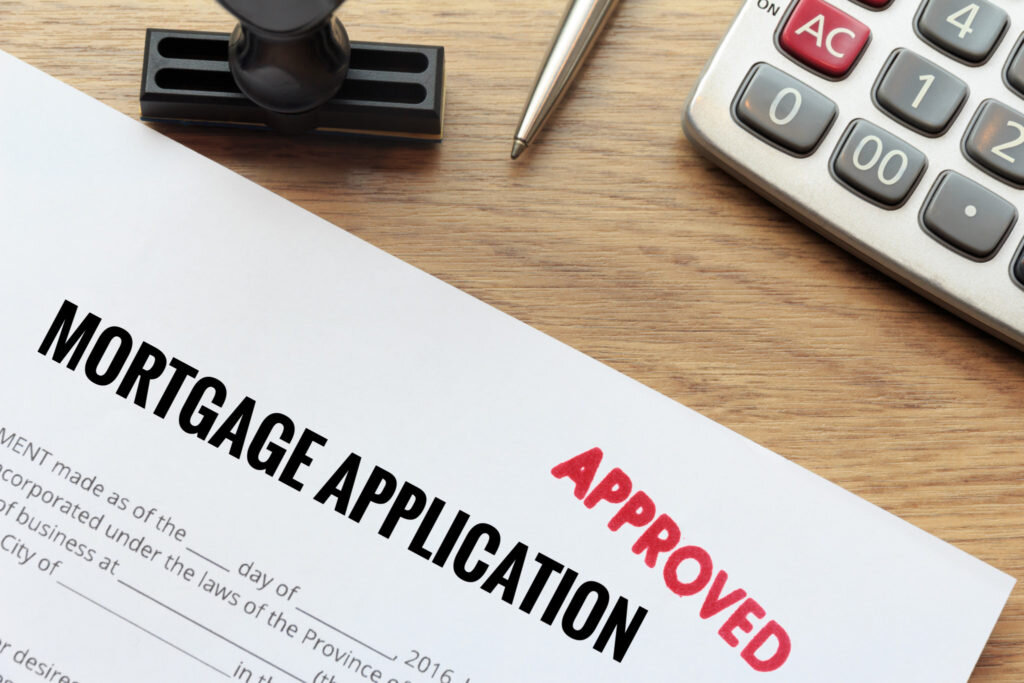Perhaps the most intimidating part of buying a home is applying for a mortgage. You may know exactly what “APR,” “points” and “fixed-rate” mean — but if this is your first home, or you just need a refresher, there are a lot of great resources to get you up to speed so you can be a well-prepared mortgage shopper. And because this is such a crucial part of owning a home, we’re going to break it all down.
What exactly is a mortgage?
It’s a loan with your house and land used as collateral. If you don’t pay back the loan, the lender will foreclose. That doesn’t mean the bank owns the house until you pay it off. It means they’ve got a lien against the property. A lien is the right to take possession of someone else’s property, in this case your home, until a debt is paid off. So you really are a homeowner even if you have a mortgage. You just own a home with a lien. Zillow’s Mortgage Learning Center offers extensive information about mortgages and is a great resource for anyone in the market for a home loan.
I can borrow as much as I want, right?
This seemed to be the thinking a few years ago, and things didn’t turn out very well. When you borrow more than you can realistically pay, that’s a sub-prime mortgage. Banks sold a lot of those to people who assumed the housing market would keep rising like gangbusters. Their home values would go up, giving them nearly instant equity and they could refinance quickly at a lower rate or sell the home for a quick profit. Lenders sold these loan products because they were making the same bet, and interest rates are always higher on sub-prime loans. Even if some ended up in foreclosure, the lenders would still make a tidy profit. Unfortunately, it was a bad bet for almost everyone.
As the housing market shows more upward movement, the temptation to borrow more than you can afford becomes enticing. That’s why it’s important to really look at how much you can spend. Your mortgage payment should be comfortable even if it’s a stretch, not a weight that drags you down each month. The lender will look at your income, debt and savings, and is required by federal regulation to demonstrate your ability to repay a loan. So while that determines how much you can borrow, it isn’t necessarily what you can afford.
You should go a step further and figure out what you can be comfortable with. Is travel a passion? Do you like spending a fair amount on dining out or other entertainment? The lender won’t factor biannual vacations or a craving for high-end restaurants into their calculations, so you have to. Fortunately, that’s easy enough with tools that help you calculate your monthly payment as well as estimate what you should be able to afford given your existing income and debts. Chances are, even after the sub-prime crisis, a lender will be willing to offer you a bigger mortgage than you think you can afford. Only you can know how much you are willing to set aside for a mortgage payment each month.
HOW DO I KNOW IF I’LL EVEN QUALIFY FOR A MORTGAGE?
A few years ago (see above), if you were breathing it seemed like you could find a mortgage. Things are a little bit tighter now. The biggest factor is your debt to income ratio. It’s your minimum monthly debt divided by your monthly income. But don’t worry. You don’t have to do the math! There’s a handy DTI calculator that will figure it out for you and estimate how much you’re likely to qualify for.
WHAT’S A GOOD CREDIT SCORE?
Here’s a crash course. FICO credit scores range from 300 to 850.
Here’s a quick guide to determine how your credit score ranks:
Excellent credit = 720 and above
Good credit = 660 to 719
Fair credit = 620 to 659
Poor/bad credit = 619 and below
The higher the score, the lower the interest rate. Your credit history makes up the largest part of your credit score (35 percent) so making payments on time each month will go far in helping your credit score.
So many kinds of mortgages! What’s best?
That depends of you and your goals for this purchase. Is this the house you plan to stay in forever? Is it a starter home you plan on selling to trade up in five years? How long you think you’ll stay in a home will help you decide between fixed- and adjustable-rate mortgages. It will also help you decide whether to focus on interest rate or points.
What’s better: Fixed or adjustable?
If you plan on staying put until the mortgage is paid off, a fixed-rate loan will give you stability. The interest rate is a little higher than an adjustable-rate mortgage (ARM). But it won’t go up like an ARM can. The only things that will change your house payment over time are property taxes and insurance rates, but those will change regardless of which type of loan you get.
On the other hand, if you know you will be selling in the not-too-distant future, the lower interest rate that comes with an ARM might make sense. Even if rates jump in a few years, you’ll be selling anyway so it won’t impact you. You can also select a hybrid ARM that is fixed for a certain number of years (3, 5, 7 or 10) then adjusts annually for the remainder of the loan. The risk with an ARM is that if you don’t sell, your payments may go up and you may not be able to refinance.
What are points?
A point is equal to 1 percent of your loan. The lender may offer to sell you points in exchange for a lower interest rate. Note: A point does not equal a percentage rate drop in interest rate. The lender will tell you how much a point will drop the rate. You can usually buy points in one-quarter increments.
So when does it make sense to buy points? Again, how long you plan to keep the mortgage will determine this. If you plan on moving in a few years, buying points to get a better interest rate may not make sense because you won’t recoup the initial investment.
If you plan on staying in the home without refinancing anytime soon, points might make sense. You have to make the choice between lower interest rates over the life of the loan or no points up front. Compare offers to see what makes sense to you.
In general, it doesn’t make sense to pay more than 1 to 1 1/2 points to a lender. If you are dealing with bad credit, a complex loan or a killer interest rate, you might pay up to 2 percent.
What’s a good interest rate?
Oftentimes, rates you see in advertisements online aren’t necessarily for the loans you qualify for. So you’ll need to investigate. Interest rates vary by location and can change daily. And they vary depending on your specific financial picture, such as income, credit score, and debts. A good place to get an idea of what rates are available to you right now is to search for interest rates on BuyHotFloridaHomes. You can get free quotes anonymously, based on your specific financial picture, so you don’t have to worry about being hassled. You’ll also be able to see mortgage rates from multiple lenders so you can easily compare rates.
Why is the percentage different from the APR?
The annual percentage rate (APR) includes fees and points to arrive at an effective annual rate. Because different lenders charge different fees and structure loans differently, the APR is the best way to compare what each lender is offering. For example, Lender A may offer you an astounding 2.0 percent interest rate that sounds far better than Lender B’s 3.5 percent. But Lender A is including points and exorbitant fees. So the APR, or what you’ll really be paying could be higher for Lender A even though the interest rate is lower. APR helps you compare apples to apples.
What’s amortization and should I care about it?
Amortization is what you are actually paying per year against your loan. You can get a mortgage with a term of 10, 15 or 30 years. You pay each month and the principal decreases until it’s paid off. The payments don’t change but at the beginning of the term, most of the payment is going toward interest. By the end of the term, that’s flipped and you’ll be paying down the mortgage principal.
An amortization calculator will help you see exactly how different loan terms impact your payment schedule and how much you pay in interest depending upon the term of the loan.
Note: If you pay half your house payment every two weeks instead of one monthly payment, you’ll end up saving money on your loan. You’ll wind up paying 26 payments per year, one more payment annually than if you just paid monthly. The re-amortized loan will eventually result in more of the payment paid on principal and less on interest. The extra payments go to pay down the principal on the loan.
Prepayment penalties: Is this really a thing?
Paying off debt is always a good thing, unless there are prepayment penalties. Some lenders actually charge you a penalty if you pay off early. The penalties generally apply for a specific period of time, usually between one and three years after the loan is originated.
Why would anyone get a loan with a prepayment penalty? Some lenders offer very low (and therefore tempting) interest rates in exchange. Also, some borrowers agree to loans with penalties if they have bad credit and it’s the only way they can get the loan. Mostly, a prepayment penalty is a financial decision. There are situations where accepting a prepayment penalty on a loan can save you thousands of dollars in interest.
What’s PMI?
It’s short for private mortgage insurance. It’s usually required if you put less than 20 percent down on your house, and it protects the lender in case you default. The cost varies, as do the methods to get rid of the PMI once you have 20 percent equity in your home. Government loan programs, such as FHA or VA loans, are backed by the government rather than PMI. There is no monthly mortgage insurance on VA loans, however you will have monthly mortgage insurance on a new FHA loan.






